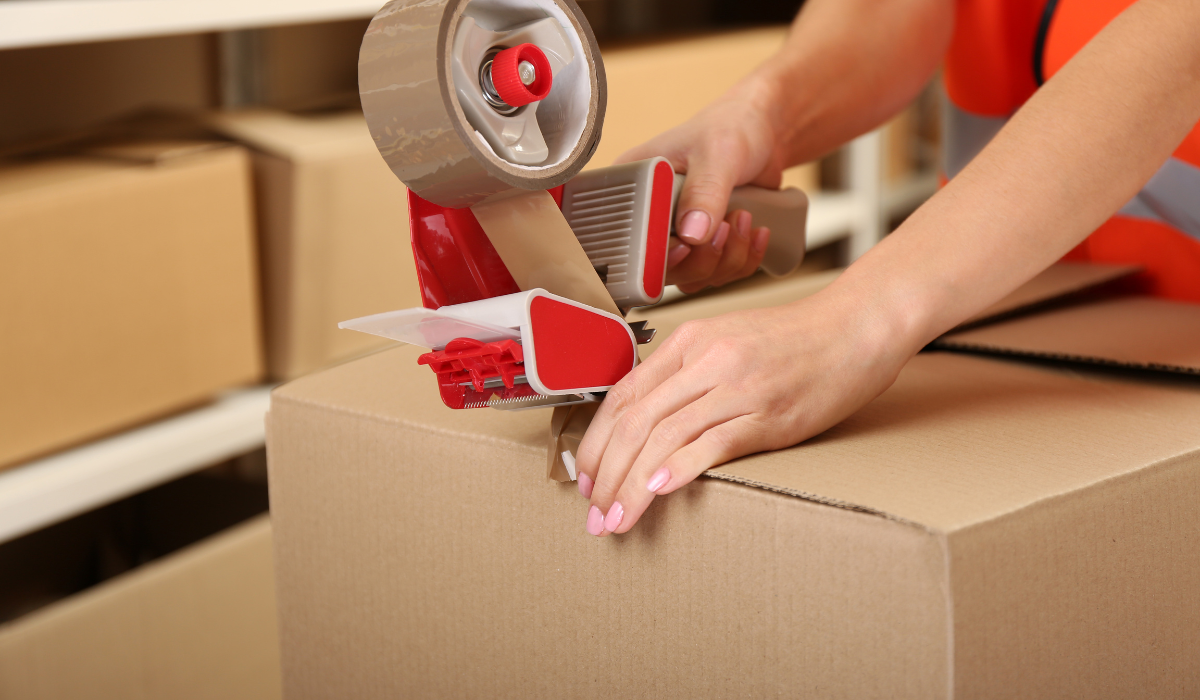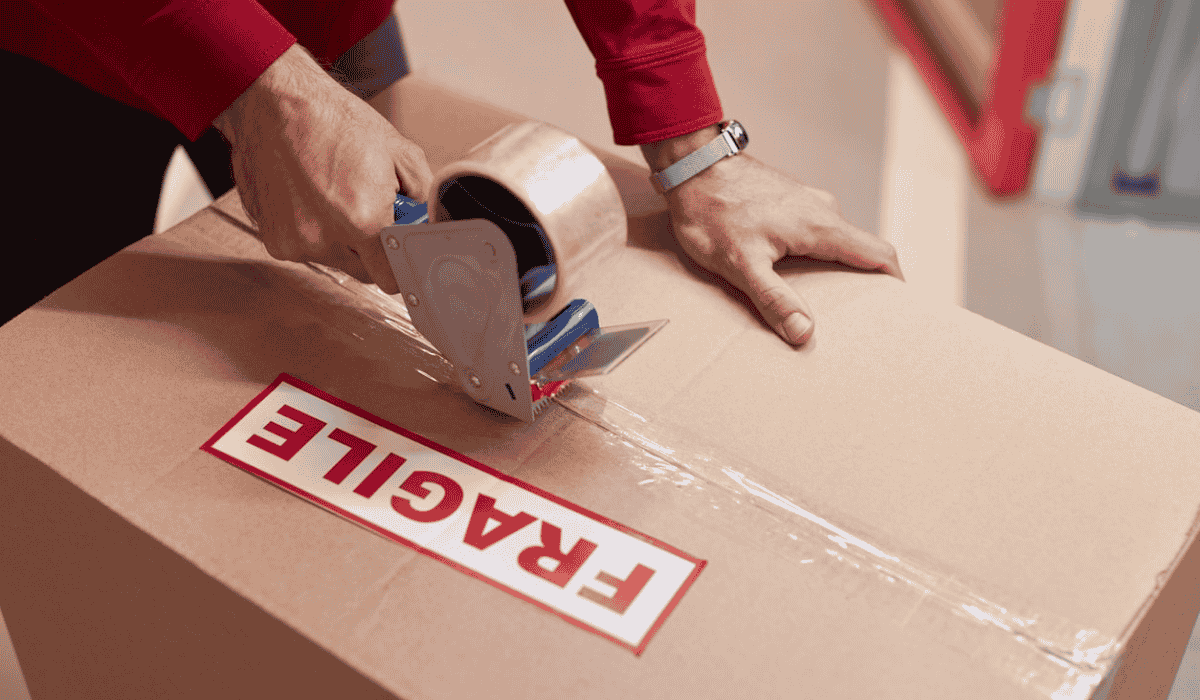How Do Packers Handle Valuable Items, Art, and Breakables Safely?
How Professionals Protect Your Valuables, Art Pieces, and Fragile Items During Packing

When preparing for a move, some belongings demand more attention than others—especially fragile, rare, or high-value pieces.
Whether it’s a glass sculpture, antique furniture, fine art, heirloom china, or a limited-edition collectible, these items carry both emotional and monetary value.
Professional packers are trained to protect them with precision, using specialized materials, techniques, and handling methods designed to minimize risk during transportation.
Understanding how experts handle packing valuable items, art and antiques packing, and professional packing for breakables helps homeowners feel confident that their treasures will arrive safely at their new destination.
Below is an in-depth look at how professionals protect delicate and high-value belongings during the moving process.
1. Initial Assessment: Identifying Fragile and Valuable Items
Before a single box is packed, professionals conduct a detailed assessment of fragile, rare, or costly items. This inspection helps them:
- Determine the type of packing materials required
- Decide whether any items need custom crating
- Identify pieces that require climate control or special orientation
- Understand size, weight, structure, and value
Items that commonly receive special attention include:
- Oil and canvas paintings
- Glassware and stemware
- Antique lamps and chandeliers
- Musical instruments
- Collectibles and sculptures
- Rare books and documents
- Electronics and camera equipment
The initial evaluation ensures that each piece is packed using the safest and most appropriate method.
This step is a core part of packing valuable items and prevents guesswork during the packing process.
2. Using High-Quality, Purpose-Built Packing Materials
One of the biggest differences between DIY packing and professional packing is the type of materials used.
Pros rely on specialized supplies designed to absorb impact and provide cushioning.
Common materials used for professional packing for breakables include:
- Double-walled cardboard boxes for superior strength
- Acid-free tissue paper for artwork and antiques
- Bubble wrap and foam wrap for shock absorption
- Custom foam inserts for oddly shaped objects
- Glass dividers and dish pack boxes for kitchenware
- Stretch wrap to protect finishes from scratches
- Corner protectors for frames, mirrors, and canvases
Because antiques and artwork can deteriorate with time or environmental exposure, using materials like acid-free paper or climate-safe plastics is essential for art and antiques packing.
3. Customized Packing Techniques Based on Item Type
Professional packers follow specific methods depending on the type of item being packed.
Below are some of the most common specialized techniques.
A. Packing Artwork and Paintings
Art requires handling with care, as even minor pressure can damage canvases or frames.
Professionals typically:
- Wrap artwork in acid-free tissue
- Add a layer of glassine paper for moisture resistance
- Use corner protectors on frames
- Wrap the entire piece in bubble wrap
- Pack the item upright in a custom-fitted box or crate
For very expensive pieces, packers may use museum-grade crating to ensure the artwork remains undisturbed during transport.
This process is an essential part of art and antiques packing.
B. Packing Glass, Ceramics, and China
Glass and ceramic items are highly fragile and require a layered packaging method.
Techniques used include:
- Individually wrapping each piece in foam or paper
- Using dish pack boxes with reinforced walls
- Adding dividers to prevent glass items from touching
- Filling empty spaces with cushioning to prevent movement
Stemware and delicate china receive extra padding around handles and rims—parts most prone to cracking.
C. Packing Antiques and Furniture
Antique furniture needs protection not just from impact but also from moisture, temperature, and handling errors.
Packers will:
- Wrap wooden furniture with padded blankets
- Use stretch wrap to prevent scratches
- Disassemble delicate pieces carefully when necessary
- Build custom crates for unusually shaped or fragile furniture
Since antiques are irreplaceable, the combination of protection and careful handling is essential for minimizing deterioration or breakage.
D. Packing Electronics and High-Value Devices
Modern electronics require static-free and shock-absorbent materials.
Packers use:
- Anti-static bubble wrap
- Original packaging when available
- Cable organizers and labeling
- Foam padding around screens and corners
Cameras, laptops, projectors, and audio equipment benefit significantly from this kind of professional packing for breakables.
4. Custom Crating for Exceptional Safety
Not every item fits neatly into a box.
For oversized or extremely delicate valuables, professional movers create custom wooden crates built to the exact dimensions of an item.
Custom crating is ideal for:
- Large sculptures
- Marble and stone pieces
- Oversized mirrors
- Chandeliers
- Antique clocks
- High-value art
These crates often include:
- Foam cushioning
- Shock absorbers
- Reinforced corners
- Secure strapping
Custom crating is one of the highest levels of protection available for packing valuable items during relocation.
5. Labeling and Inventory Management for Traceability
Proper labeling ensures that fragile or valuable boxes are always handled correctly and placed in the most secure areas of the truck.
Professionals use detailed inventory systems that typically include:
- “FRAGILE” or “HANDLE WITH CARE” tags
- “THIS SIDE UP” indicators
- Itemized packing lists
- Barcode or digital tracking systems
- Photographs of valuable items before packing
This approach reduces the risk of misplacement and helps movers maintain full accountability.
6. Specialty Handling During Loading and Transportation
Even with the best packing methods, items must also be handled properly during loading and transportation.
Professionals ensure that:
- Fragile boxes are placed on top and away from heavy items
- Crates are secured tightly to prevent shifting
- Furniture and valuables are loaded in a stable configuration
- Moving blankets and straps keep items from sliding
- Environmental controls are used for temperature-sensitive pieces
Furniture pads, tie-down straps, and non-slip surfaces help maintain the safety of valuables throughout the journey.
7. Climate and Environmental Controls for Sensitive Items
Some belongings—especially artwork, antiques, and musical instruments—are highly sensitive to temperature and humidity changes.
For these items, professionals may recommend:
- Climate-controlled trucks
- Moisture-resistant packing materials
- Silica gel packets for humidity regulation
- Avoidance of extreme temperature fluctuations
This type of protection ensures items aren’t exposed to conditions that could cause cracking, warping, mildew, or color fading.
8. Insurance and Documentation for Added Protection
Reputable packing and moving companies offer insurance coverage for valuable or high-risk items.
This coverage provides peace of mind and ensures compensation if something unexpected happens.
Experts typically help clients choose:
- Declared value protection
- Full replacement coverage
- Per-item insurance for high-value pieces
Combined with photos, appraisals, and detailed inventories, this is an important safeguard in addition to professional packing for breakables.
9. White-Glove Delivery at the Destination
Once items arrive, professionals don’t simply unload—they carefully unpack and reinstall valuable items in their new location.
White-glove delivery can include:
- Reassembling antique furniture
- Hanging artwork
- Setting up displays
- Unwrapping fragile items with care
- Cleaning the area after unpacking
This final step ensures that the value and condition of each item remain intact throughout the moving process.
Conclusion
Professional packers take a systematic, highly skilled approach to protecting high-value, delicate, and irreplaceable belongings during a move.
Through precise techniques, premium materials, custom crating, careful handling, and strategic loading, they ensure that breakables, art, antiques, electronics, and collectibles reach their destination safely.
Anyone relocating with valuable possessions can benefit greatly from expert services specializing in packing valuable items, art and antiques packing, and professional packing for breakables, ensuring peace of mind and exceptional care from start to finish.
FAQs
How do professionals ensure the safety of fragile and valuable items?
Professionals use high-quality materials, specialized packing techniques, and careful handling practices to protect delicate belongings. They rely on padded blankets, bubble wrap, reinforced boxes, and custom crates to ensure safe transport when packing valuable items.
What is included in art and antiques packing?
Art and antiques packing includes using acid-free tissue, glassine paper, corner protectors, custom-fit boxes, and sometimes museum-grade crates. The process is designed to prevent damage from pressure, moisture, and vibration during transportation.
Do packers use custom crates for delicate items?
Yes. Custom wooden crates are often used for sculptures, chandeliers, large mirrors, marble pieces, and high-value artwork. These crates offer superior cushioning and stability for long-distance or fragile shipments.
How are glassware and china packed safely?
Professionals wrap each piece individually using foam or paper, place them in dish-pack boxes, and use dividers to prevent movement. This method is an essential part of professional packing for breakables, ensuring maximum protection during transport.
Can packers handle extremely valuable artwork or collectibles?
Absolutely. Experienced packers can manage high-value art pieces, rare collectibles, and delicate antiques. Many moving companies have trained specialists who handle museum-grade packing and transport.
How do packers protect antique furniture?
Antique furniture is wrapped in thick moving blankets, reinforced with stretch wrap, and sometimes partially disassembled. Custom crating is used for exceptionally delicate or irreplaceable pieces to prevent scratches, dents, and movement.
What steps are taken to pack electronics safely?
Electronics are packed using anti-static materials, foam padding, and secure boxes. When possible, original packaging is used to ensure the best fit and protection for devices like laptops, cameras, and audio equipment.
Do professionals use climate-controlled transportation for sensitive items?
Yes. For sensitive artwork, antiques, instruments, or valuable electronics, professionals may recommend climate-controlled trucks to avoid damage caused by temperature or humidity fluctuations.
How do packers make sure fragile boxes are handled correctly?
Each box is labeled clearly with “Fragile,” “This Side Up,” and item lists. Movers follow an organized loading strategy, ensuring fragile boxes remain on top and away from heavy or unsafe objects.
Is insurance available for valuable or breakable items?
Reputable moving companies offer a range of insurance options, including full-value protection, declared value coverage, and per-item policies. This provides peace of mind when packing valuable items or transporting costly belongings.
What should I do to prepare valuable items before packers arrive?
You can take photos, gather appraisals, and make a list of valuables. Clearing pathways and identifying priority pieces also helps professionals plan the best strategy for art and antiques packing.
Are packers trained to handle items with unusual shapes or delicate surfaces?
Yes. Professionals receive training for handling objects with irregular shapes, fragile surfaces, and complex structures. They often design custom foam inserts or crates to secure these pieces.











